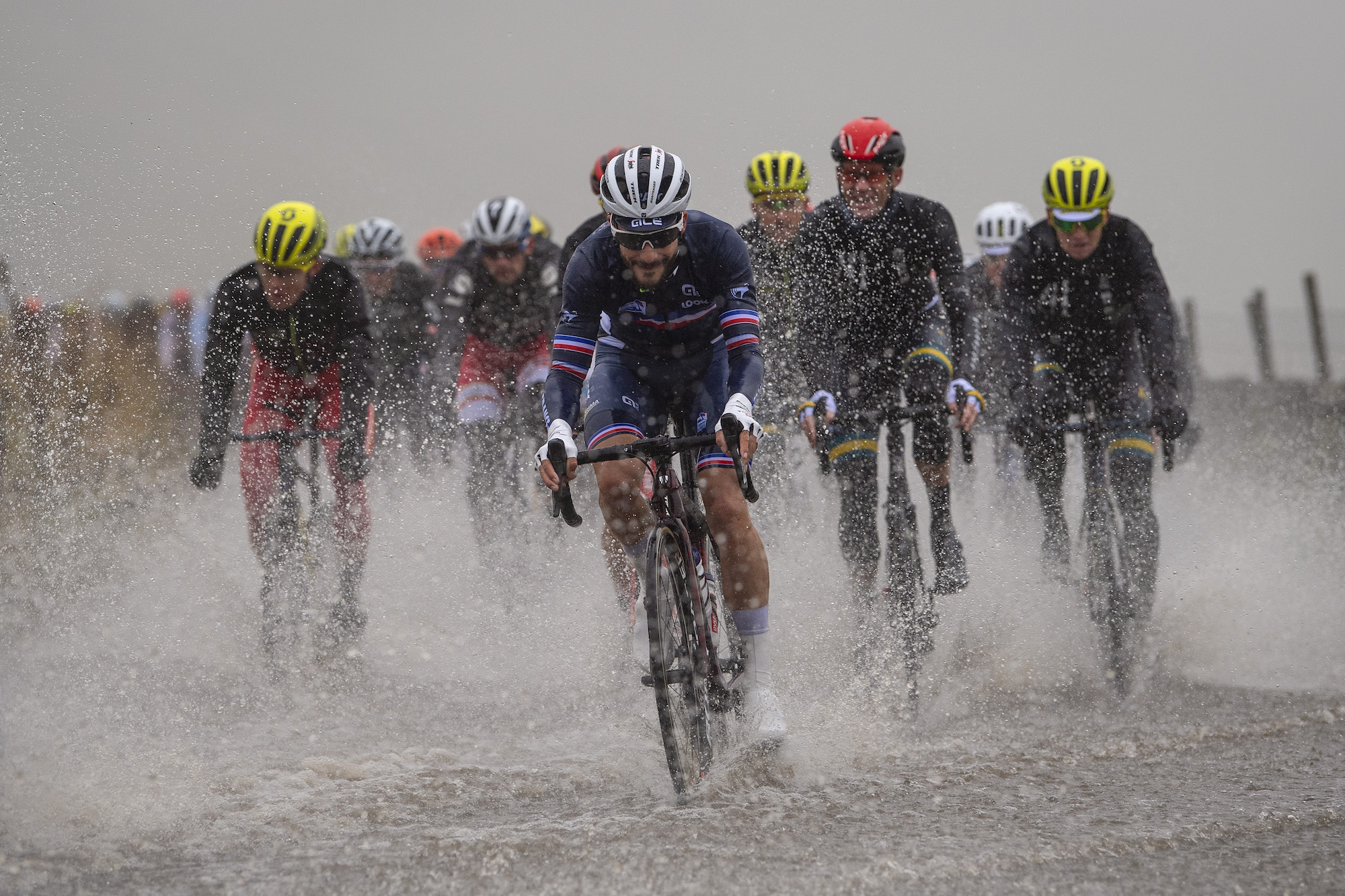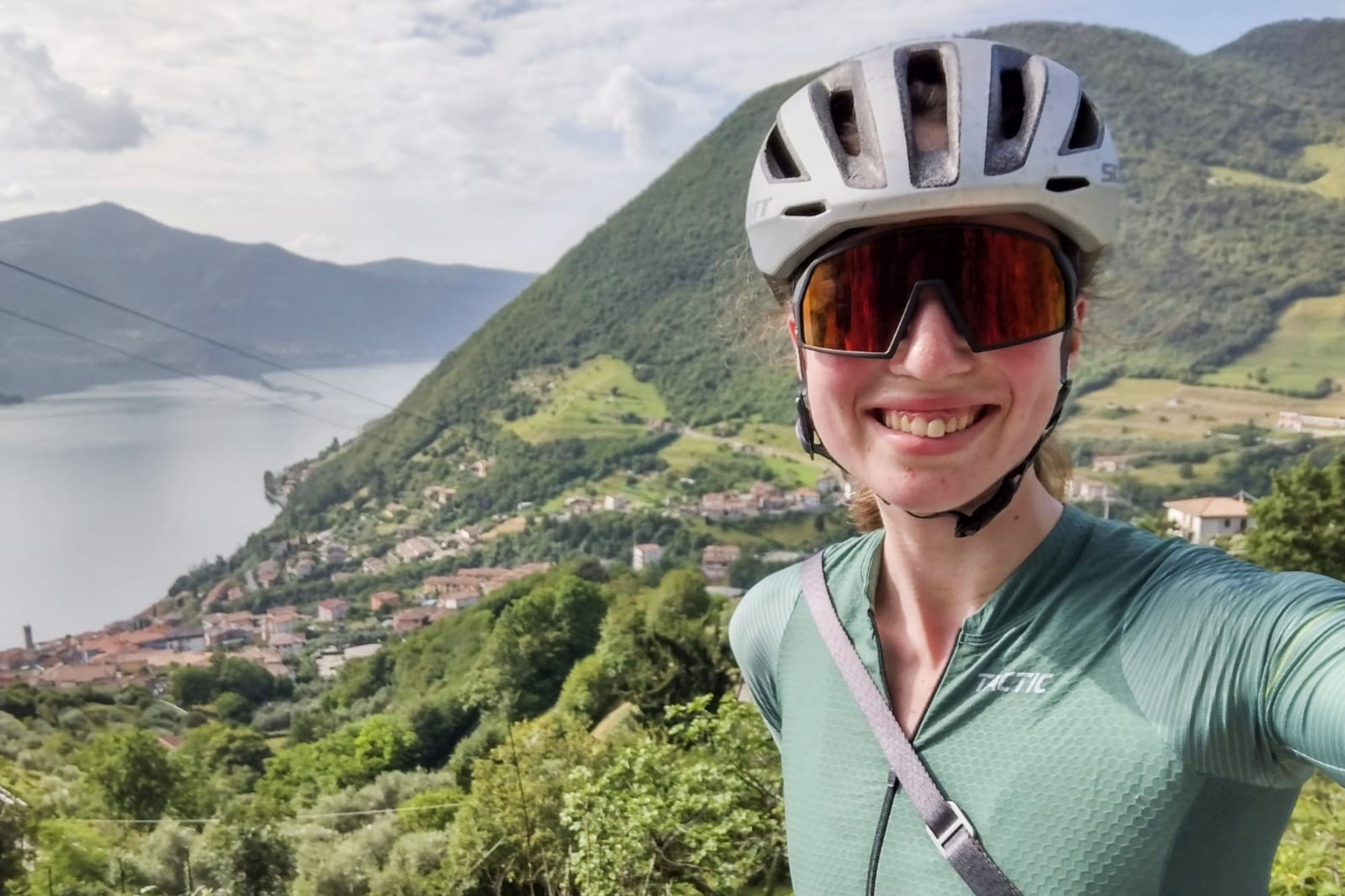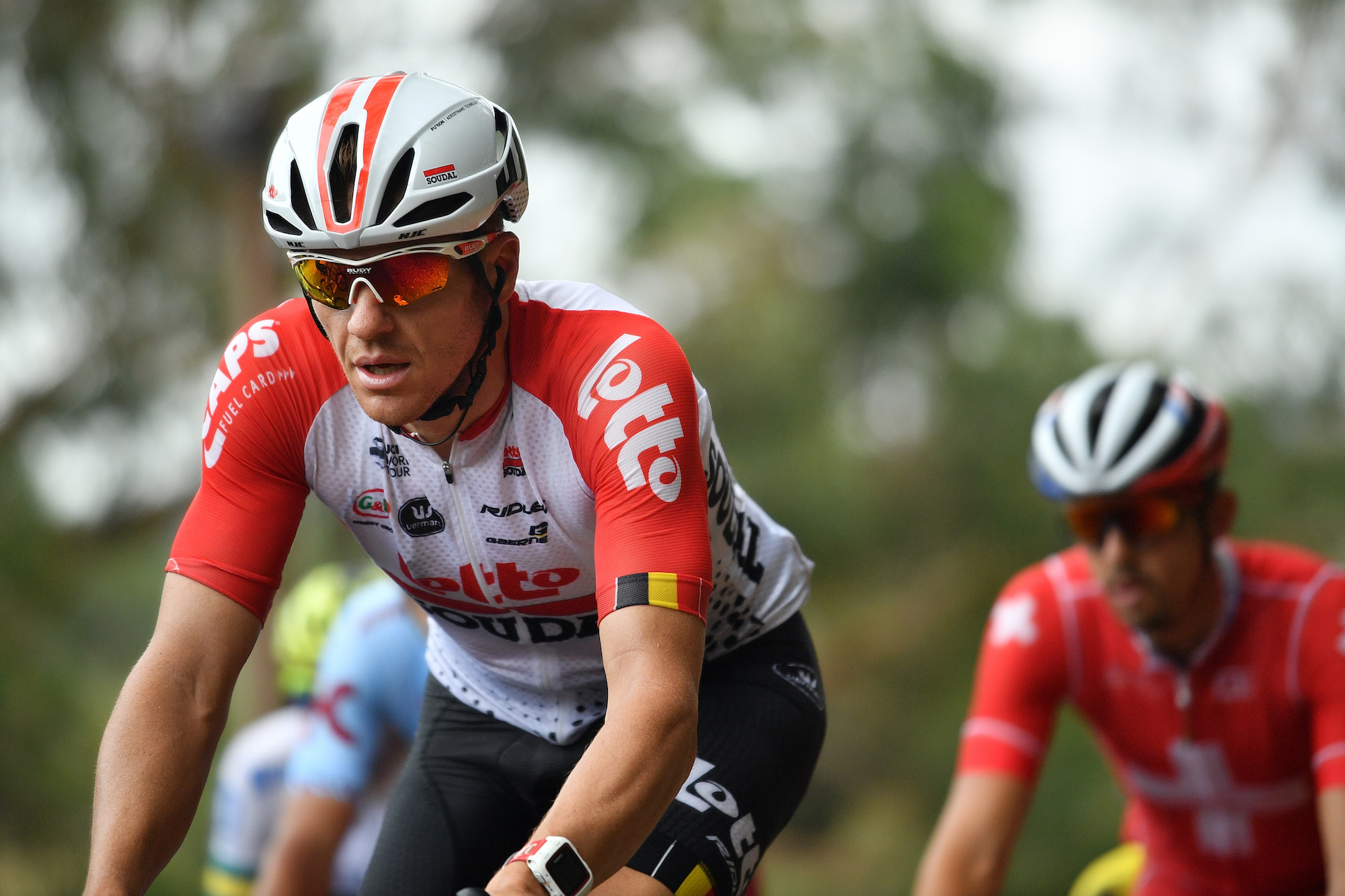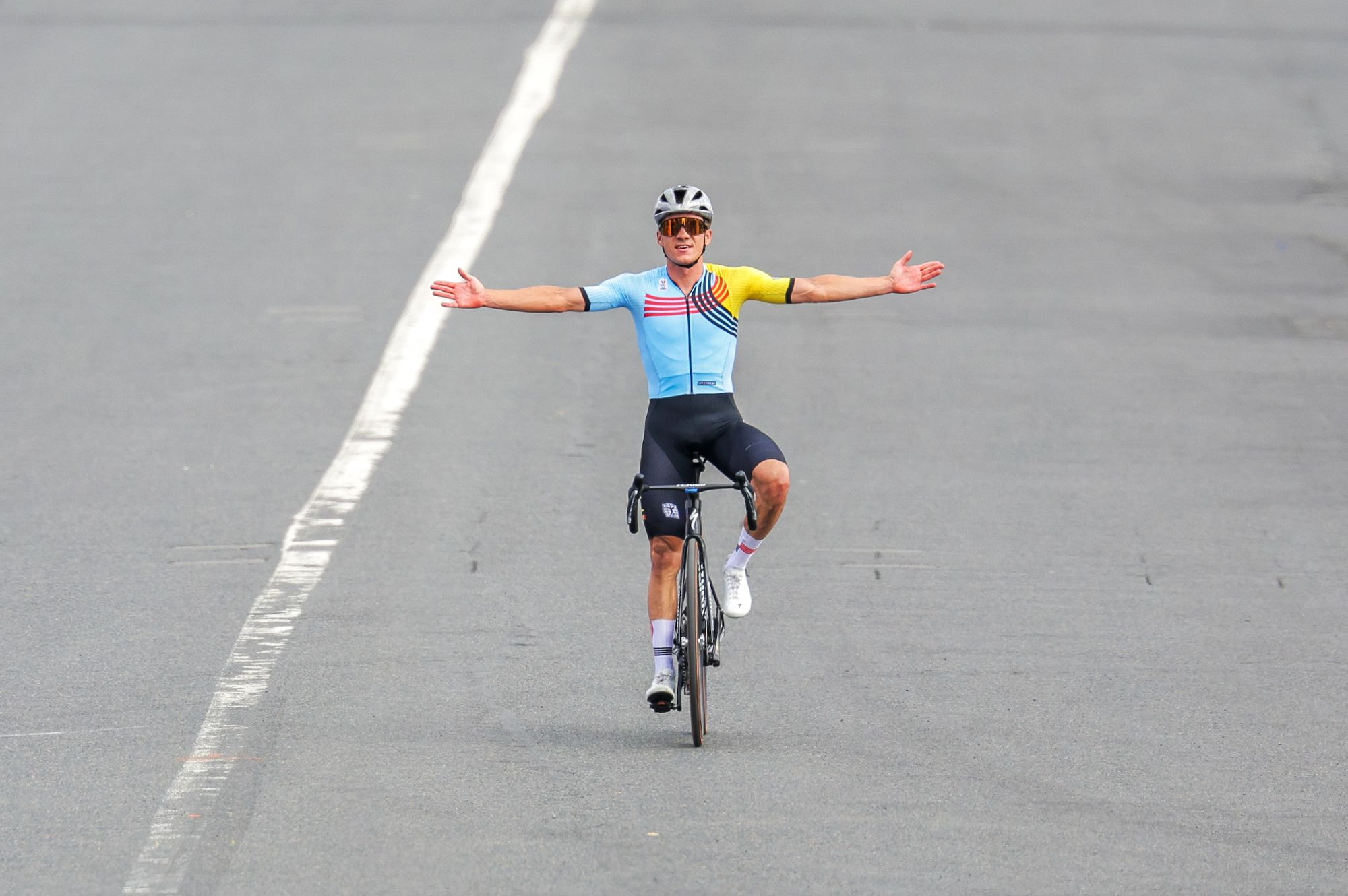The final pillar of success to being a great rider? Just add grit
Being physically fit and strong isn’t enough. Mental resilience is the final pillar of success. Anna Marie Hughes goes in search of grit

Yorkshire Worlds 2019 (Photo by Justin Setterfield/Getty Images)

We have all felt mentally tired, even if 'mental fatigue' isn’t a term we use very often. Be it after a particularly long, gruelling ride or a stressful day at work, when you’re mentally fatigued, your concentrate is hampered, and hills become mountains.
Training rarely addresses this mental tiredness directly - yet it is possible. The ability to stay alert, resilient and motivated in adverse situations - critical for all cyclists - can be trained. It’s time to find out how.
Sports psycho-biologist Professor Samuele Marcora, who researches mental fatigue at the University of Bologna, points out that "mental fatigue increases your perception of effort for the same power output, and so will decrease your performance." Therefore, instead of burying yourself to notch up your FTP by a watt or two, improving your resilience to mental fatigue might allow you to more effectively access your fitness reserves.
As well as having physiological effects, mental fatigue can cause a "decline in your ability to perform cognitive tasks and your ability to concentrate," says Marcora. Given the tactical nature of road racing - or the cognitive challenge that is avoiding the potholes of our Great British B-roads - resilience to mental fatigue could make the difference that gets you in the winning break or means you stay rubber-side-down on an all-day ride.
How the pros do it
It’s not just your ability to push harder and be more tactically aware that stands to be improved. Being mentally resilient enables you to respond to setbacks with a more positive approach. Chris Carmichael, an ex-professional rider who was part of the first American team (7-Eleven) to race the Tour de France, back in 1986, says: "There were a lot of talented athletes from my era who stopped short of their potential because of psychological challenges that could be addressed if they were athletes today."
Now, as founder and head coach of Carmichael Training Systems (CTS), Carmichael examines the mind as well as the body: "Our job as coaches is to help athletes fill their mental and physical toolbox with skills, fitness and knowledge so they can make winning decisions under pressure."
Get The Leadout Newsletter
The latest race content, interviews, features, reviews and expert buying guides, direct to your inbox!
It’s easy enough when everything is going well, but when unpredicted things happen and events turn in an unwelcome direction, riders need to be prepared with a strong set of contingency plans to come out the other side victorious, or least hardened. Physical preparation gets you to the start line, but it is mental adaptability that gives you the potential to perform to the best of your ability. "If competitions were won purely by being the most physically prepared," adds Carmichael, "we could test athletes in the lab and hand out the medals without ever holding the race."
As a rider who has undertaken 20 consecutive Grand Tours, the Australian Adam Hansen (Lotto Soudal) has an insight into the importance of mental resilience. Across 70,000 Grand Tour kilometres, the 38-year-old has demonstrated grit like few other pros.

"The races get tough, and more so with bad weather. There can be times when you experience a week, or two weeks, of just cold rain. Being on the bike for around five hours a day is not easy. You just freeze," says Hansen.
It’s not only the riding; being off the bike presents its own struggles. "I’m very much an introvert," Hansen admits. "The constant socialisation [as a pro] brings its own fatigue and takes its toll." Mental fatigue for Hansen manifests itself in "pure exhaustion and a loss of motivation at being at the races."
>>> Cycling Weekly is available on your Smart phone, tablet and desktop
When faced with these situations, Hansen’s response is a form of Zen detachment: "I always have a saying that I repeat in my head: No matter what happens today, I will be in a hotel bed tonight. So just let it be, let time pass, and you will get through it."
In road racing’s tactical environment, fortunes can change very rapidly, but Hansen urges: "Never give up, not in any situation" - as fate can turn in your favour equally fast. Testing his limits year on year in Grand Tours has developed his mental endurance ahead of other events: "I am so relaxed going into a race, knowing anything else I try cannot be as hard."
In at the deep end
Winter is the season of suffering. Improving your mental resilience will increase your capacity to withstand turbo torture and A-road agony. Most of us already struggle to fit training in and around our busy lives, so adding extra sessions to focus specifically on brain training is easier said than done.
Fortunately, in terms of mental resilience, we are already training our minds in our regular training and races. Pressing on to finish a three-minute interval at maximal effort, for instance, is going to be cognitively taxing as well as physically. Even so, specific mind-training is important. In the same way that sprinting on the bike can’t replace focused weight training at the gym, your regular training will benefit from sessions designed to tax your mind.
There are two ways to approach increasing your mental resilience. The first is concurrent brain-endurance training: this is where a cognitive task is performed at the same time as the physical task of cycling. In this way "your brain is more engaged," says Marcora. The second is the pre-fatiguing method, which involves performing a cognitive task before a session on the bike.
In his scientific studies, Marcora uses a Stroop test as the cognitive task - which requires the subject to say the word, not the colour. For example, if the word shown was ‘blue’, printed in red ink, the required answer would be blue. It sounds simple, but a tired mind can easily confuse the priorities.
Accruing mental fatigue pre-workout is forced on to many of us. A day’s work, for example, provides similar levels of fatigue as a targeted task. Instead of doing your session later in the evening, after a post-work mental reset, train while mentally fatigued to improve your mental resilience. "Not all training sessions should be done in an optimal psychological or physiological state," Marcora clarifies.
It’s the sessions you least want to do that provide the greatest benefit. "If you don’t enjoy something and have to force yourself to do it, it is much more mentally fatiguing," says Marcora. Simply being 'hard' or 'demanding' isn’t enough to guarantee something stimulates this form of training gain.
Of course, you should refrain from mentally fatiguing training or tasks before a target event. "It’s similar to doing a high-intensity training session - the training is beneficial but you wouldn’t do it just before a race," says Marcora. Race day must be stress-free. Plan the day’s procedures well beforehand so you are not having to make draining decisions pre-race. Over the two or three days before, make kit choices, refine your race day schedule and dial your bike setup.
Even if this hasn’t motivated you to incorporate adversity sessions, next time you’ve had a tough day, take solace from the fact you’re training another aspect of your fitness. Don’t be disheartened if your figures are lower; simply save your high-intensity efforts for another day.
It is clear that mental fortitude is an essential part of racing; it is not necessarily the strongest who wins, but the rider with the most grit. You can be as fit as you like, but if you can’t hack it when the unexpected is thrown your way, that’s a missed opportunity to excel. When the going gets tough, others will crumble. Your mental resilience can be improved through adversity training, whether this is by the conscious inclusion of specific sessions, or just by re-thinking how you factor-in the unplanned stresses of life. Indoors or outside, doing it once a week is all that’s needed for progression. Engage your mind, add grit, and your legs will do the rest.
This feature originally appeared in the print edition of Cycling Weekly, on sale in newsagents and supermarkets, priced £3.25.

Thank you for reading 20 articles this month* Join now for unlimited access
Enjoy your first month for just £1 / $1 / €1
*Read 5 free articles per month without a subscription

Join now for unlimited access
Try first month for just £1 / $1 / €1

I’ve been hooked on bikes ever since the age of 12 and my first lap of the Hillingdon Cycle Circuit in the bright yellow kit of the Hillingdon Slipstreamers. For a time, my cycling life centred around racing road and track.
But that’s since broadened to include multiday two-wheeled, one-sleeping-bag adventures over whatever terrain I happen to meet - with a two-week bikepacking trip from Budapest into the mountains of Slovakia being just the latest.
I still enjoy lining up on a start line, though, racing the British Gravel Championships and finding myself on the podium at the enduro-style gravel event, Gritfest in 2022.
Height: 177cm
Weight: 60–63kg
-
 'If I were a tennis player then my career would be over': Remco Evenepoel contemplated early retirement after serious training accident
'If I were a tennis player then my career would be over': Remco Evenepoel contemplated early retirement after serious training accidentDouble Olympic champion was left with nerve damage in his shoulder and says his shoulder is not yet fully healed ahead of his return to racing at Brabantse Pijl
By Tom Thewlis
-
 MAAP Aeon Jersey Review: as classy as ever, and built to go the distance
MAAP Aeon Jersey Review: as classy as ever, and built to go the distanceThe MAAP Aeon collection is hardly a value option, but it does provide impressive quality, and a great fit
By Joe Baker